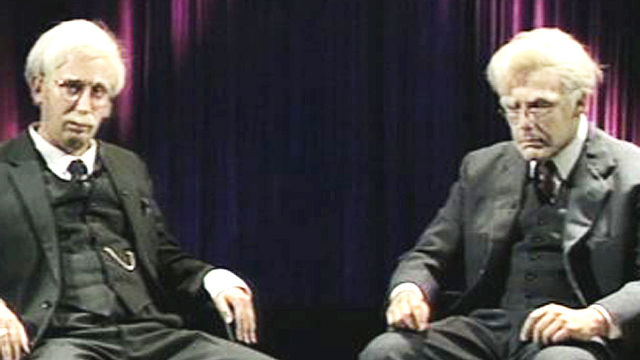
April 1, 2017, by Harry Cocks
Teaching Excellence Framework “Should Measure Erotic Capital” of Academics
A new study released today suggests that the government’s new Teaching Excellence Framework, which aims to assess the quality of teaching in universities, should also assess the “erotic capital” of academics. Dr Avril Sottise of the educational think tank the Institute for Studies (see link) argues in a new piece that the personalities of academics should be part and parcel of any future form of teaching assessment. The term “erotic capital” was first coined by the LSE sociologist Catherine Hakim in her 2011 book Honey Money: The Power of Erotic Capital. According to her it refers to the combination of “beauty, social skills, good dress sense, physical fitness, sex appeal and sexual competence.” The term applies to men and women, though erotic capital of this kind particularly favours women, Professor Hakim says, and identifying it is nothing more than recognising that this is the way the world works. Neither is Professor Hakim alone in this – the eminent philosopher Martha Nussbaum has argued repeatedly that teaching is an intimate, quasi-erotic activity. Morever, Dr Sottise says, several studies have already pointed out that student evaluations already contain hidden forms of bias, especially against women instructors, and including a measure of erotic capital might be a way of balancing that prejudice in any survey. She argues further that student evaluations should include a section in which the fitness and personal magnetism of the tutor should be measured, by including such questions as “The tutor was well dressed” or “the tutor had a magnetic personality,” with the student then asked whether they “agree” “strongly disagree,” disagree or are neutral on the matter. The inclusion of such metrics in student evaluations and the National Student Survey would encourage academics to raise their game in many different ways, Dr Sottise says. “Being better dressed, properly made up, or fitter makes you a better teacher in the eyes of students, and who is to say that they are wrong?” Dr Sottise argues. Dressing well is part of the game of impressing people, and sharp clothes and toned bodies should therefore be part of the uniform of any academic, she argues. Some companies have already seen the potential of such new forms of professional assessment. A new consultancy, Colour Me Academic, has been set up as a spin-off company by lecturers from the University of Hertfordshire alongside former TV style consultants Trinny Woodhall and Susannah Constantine, and and aims to offer style, deportment, and other advice on the accumulation of erotic capital to academics. “We all know that academics are very sloppy dressers, but the age of the elbow patch is over,” Dr Sottise says. “Everyone knows at least one professor who would benefit from a regime of 50 crunches or star jumps a day.” This, she argues, would make them far more effective at their jobs and generate substantial levels of erotic capital, thereby encouraging better student evaluations. The Universities minister, Jo Johnson, has already expressed his approval of the plan, which, he says, is very much in keeping with the spirit of his new Higher Education bill.
Avril Sottise, “The TEF and the Academic Personality”, Bulletin of the Institute for Studies (March 2017)

I’m not sure how joking about sexism in the workplace is a good way of fighting it.
Thanks for your comment. Just as a point of information, the concept of “erotic capital,” however inane, applies universally, to men, women and everyone else.
Thought provoking piece.